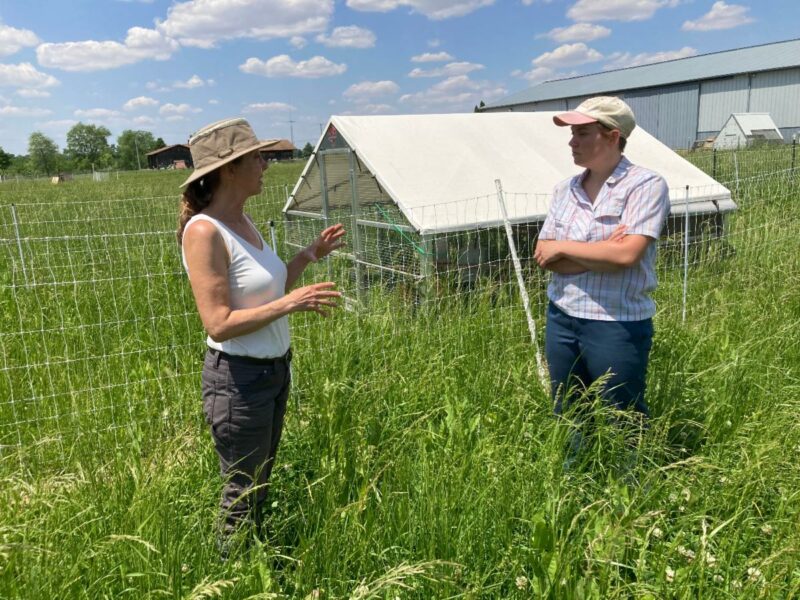Reprinted with permission from our friends at Illinois Farmlink.
Agriculture is a climate problem – and a climate solution. This is the belief of the non-profit, Climate Land Leaders, now beginning to serve farmland owners in Illinois. The organization views landowners as powerful decision makers capable of implementing agricultural and conservation practices that alleviate climate change.
Climate Land Leaders facilitates peer-to-peer learning networks made up of landowners in the Midwest looking to steward their land in ways that address climate change through conservation practices. The goals of each landowner are different and specific to the individual and their property. The practices also vary. Some of the more powerful climate-focused practices include planting trees or other perennials plants, managing soil health, integrating livestock into diverse perennial pastures, and reducing the application of synthetic chemicals. Ultimately, though, all Climate Land Leader members share a vision to build soil health, increase biodiversity, and protect water so that ecosystems and communities will thrive in a rapidly changing climate.
Climate Land Leaders began in 2020 with a small group of farmland owners interested in alleviating climate change through agriculture. Today Climate Land Leaders are in Minnesota, Iowa, Wisconsin, the Dakotas, Kansas, and more recently Illinois and Ohio. New staff member Christina Foster is leading the effort in Illinois.

“It is an honor to be in community with farmland stewards who care so deeply about their land, how it is farmed, and its impact on our climate,” says Christina. “I invite other Illinois farmland owners to join this community of leaders who demonstrate that change is possible.”
Christina is a sixth-generation steward of her family’s farmland in Sugar Grove in Kane County. She moved back to the farm three years ago with her husband and son, driven by audacious dreams of transforming the conventionally farmed 35 acres into a farm where people can gather and learn about regenerative agriculture.
She grew up on this farm, and while she was only involved in farming until college, she felt a deep connection to the land.
Over the last five years, Christina has spent considerable time researching the best options for the farm, defining and prioritizing her conservation goals, and drafting a rotational grazing plan. Intentionally starting small, she transitioned 3-acres to perennial pasture, began raising a flock of laying hens on pasture, and then added three playful goats to learn how to implement adaptive grazing. “We’ve learned a lot and are ready to expand our transition.”
As her future plans take shape, Christina imagines expanding the pasture, adding more livestock, integrating agroforestry, offering agritourism, and finding a like-minded farmer collaborator to partner with.
Without the help of many people (including other landowners and Nathan Aaberg of Illinois FarmLink), Christina recognizes she would have had a hard time translating her ambitious goals into action. Joining Climate Land Leaders both as a staff person and as a fellow landowner has opened up new sources of information, ideas, and encouragement. She wants other farmland owners to have access to all that too.
One word Christina often uses to describe the benefits of Climate Land Leaders is camaraderie. Through monthly community calls, one-to-one connections, and a commitment to peer learning, Climate Land Leaders is building a network of like-minded landowners who support and inspire each other.
There are currently 15 Climate Land Leaders in Illinois, and Christina has hopes of growing this network to 20 members by the end of this year. Becoming a member is free and gives you access to resources and the support of a network of Climate Land Leaders around the Midwest.
If you’re a landowner looking to get connected to their network, Christina encourages you to reach out for a conversation. You can contact her at christina@climatelandleaders.org.
“As an individual landowner myself, I have experienced the support and camaraderie that is at the heart of Climate Land Leaders,” says Christina. “Together we’re creating a community for landowners who want to be good stewards of their land.”